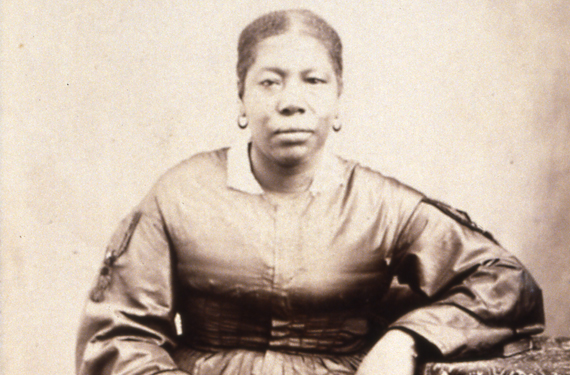
Isaac James left the family in 1869 after selling most of the family’s realty to his wife. There is no evidence that suggests that Isaac had any permanent relations with any members of the family again. Within four years Jane was remarried to her son Sylvester’s father-in-law, Frank Perkins. The marriage lasted less than two years, after which time Jane reverted to her former married name. It was at this time that Jane became increasingly worried about her eternal welfare. She began to petition the First Presidency to be endowed and to be sealed, along with her children, to Walker Lewis, a prominent African-American Mormon Elder. Lewis, like Elijah Abel, had been ordained to the priesthood during Joseph Smith’s lifetime, and Jane therefore assumed that he would be eligible for temple ordinances. However, her petitions were consistently ignored or refused.
Despite these trials, Jane neither renounced her faith nor gave up hope that one day she would have the blessings she desired. Throughout the 1870’s and 1880’s, she struggled to care for the remaining children at home as a single parent. In 1872, she sold the family farm and moved closer to the city in order to save money. During these years Jane both managed a household of children and small grandchildren, but also worked as a domestic servant in order to make ends meet. In addition, she made the family’s soap, clothing, and raised vegetables in a small garden. Jane remained active in the church at this time as well. She participated in the Relief Society doing extensive charitable work. She also contributed financially to the building of the Logan, Manti, and St. George temples; temples that, as an African-American, she was not allowed to enter. The members of Jane’s congregation, however, did recognize her faith and sacrifice. In her later life, both she and her brother Isaac J. Manning received reserved seats near the front and center of the Utah Tabernacle for church services.
Jane continued to ask that she and her family be given the ordinance of adoption so that they could be sealed together forever. Her justification for asking to be the exception to the church’s rule was Emma Smith’s offer in 1844 to have her sealed to the Smith family as a child. Jane was now reconsidering her decision, and asked to be sealed to the Smiths. Her requests were again refused. Instead, the First Presidency “decided she might be adopted into the family of Joseph Smith as a servant, which was done, a special ceremony having been prepared for the purpose.” The ceremony took place on May 18, 1894, with Joseph F. Smith acting as proxy for Joseph Smith, and Bathsheba W. Smith acting as proxy for Jane James (who was not allowed into the temple for the ordinance). In the ceremony, Jane was “attached as a Servitor for eternity to the prophet Joseph Smith and in this capacity be connected with his family and be obedient to him in all things in the Lord as a faithful Servitor”.
Jane was dissatisfied with that unique sealing ordinance, and applied again to obtain the sealing that was offered to her by Emma. According to the diary of Franklin Richards, the LDS First Presidency met on August 22, 1895, to consider Jane’s appeal, but again turned her down. (At this same meeting, they also considered the case of Mary Bowdidge Sojé Berry Smith, “a white Sister who [married] a negro man [and] entreats for permission to receive her ordinances but is refused.”) Jane would petition the leaders of the church for the rest of her life, but with no success. She continued to have trials: all but two of her eight children (Sylvester & Ellen) preceded her in death, as did 6 of her 14 grandchildren.
Jane Elizabeth Manning James died April 16, 1908, in Salt Lake City. Her life was marked by sometimes overwhelming hardship. Despite her circumstances, it is apparent that she died on good terms with the LDS Church. Church President Joseph F. Smith spoke at her funeral, which, according to The Deseret News, was attended by many.
In 1979, nearly 72 years after her death, Jane Elizabeth Manning James was endowed by proxy.
In June 1999, a monument to James’ life was dedicated near James’ grave in the Salt Lake City Cemetery by the Genesis Group (an official organization begun under LDS President Joseph Fielding Smith to support Latter-day Saints of African descent) along with the Missouri Mormon Frontier Foundation. The original headstones of Jane and Isaac James were supplemented with a granite monument faced with two bronze plaques.
